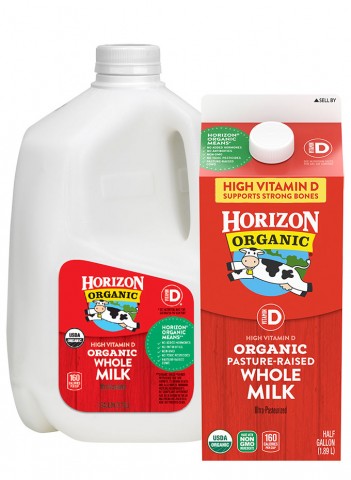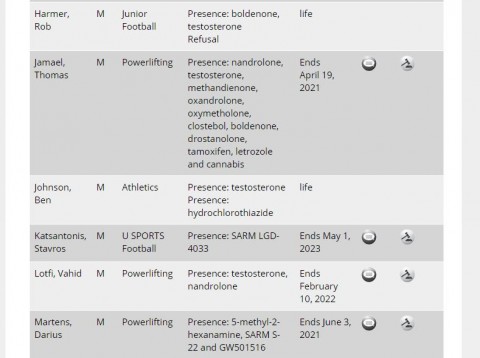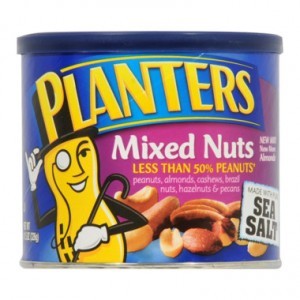It's no surprise that exercise is good for the body. And more recently we've learned of the benefits of exercise on the brain. New research indicates the effects are further improved when there is a nutritional shake included with the training. A study out of the University of Illinois looked at the effects of exercise and nutrition on the body and the brain. The study ran 12 weeks and included 148 active Air Force servicemen. The study participants were divided into two groups. Half of the 148 did the exercise program as well as a twice a day nutritional supplement. The nutritional supplement was a mixture of omega-3 (DHA), lutein, phospholipds, vitamins B and D and HMB. The control group took a caloric controlled placebo beverage lacking the nutrients listed above. In terms of the exercise this included strength and high intensity intervals made up of aerobic challenges. So what did they find? Exercise is good for the body apparently. Serviceman got stronger, fitter, more powerful and more mobile. What was interesting is that mobility and stability improved the most, i.e. 22%, of all physical qualities measured. The group that took the nutritional supplement saw enhanced improvements in their cognitive function. Compared to the placebo group there was increase in working memory (+ 9.0%), fluid intelligence reaction time (− 7.7%), and processing efficiency (+ 1.8%). The supplement group also lowered their resting rate more (− 2.4%) and and added more muscle i.e. lean muscle mass (+ 1.5%). It would have been interesting to see what the improvements would have been had there been a group that only took the supplements and did not do the exercise. We know exercise improves circulation which facilitates digestion, assimilation, transport and uptake of nutrients. But to what degree? As well, the nutritional shake had quite a few ingredients. Which ones...
Vitamin D supplementation - Is it worth it? It Is, As Per The Botox And Filler Course Online
Do you take supplements? If so, which ones do you take? And why? A popular one these days is vitamin D. We've seen a rise in the number of people taking vitamin D during the winter months when there is either less sunshine or it's too cold to get out there and get some rays. According to the Botox And Filler Onilne Course you can get at www.cosmeticcourses.co.uk, which focuses of the use of Botox and Fillers but also provides a basic guide about skincare, Vitamin D helps regulate the amount of calcium and phosphate in the body. These nutrients are needed to keep bones, teeth and muscles healthy. A lack of vitamin D can lead to bone deformities such as rickets in children, and bone pain caused by a condition called osteomalacia in adults. So why the need to supplement with vitamin D? Well this vitamin is required for calcium absorption which plays a role in our bone health. This relationship is seen whenever you drink milk. On almost every milk container you'll see a mention of vitamin D. According to the Institute of Medicine we should get 600-800 IU (international units) of vitamin D per day. Higher levels of 1-2000 IU per day are still deemed safe. As our bodies cannot produced this vitamin it is important that we supplement. Compounding the challenge of our bodies not being able to make it is the fact that we spend more of our days indoor. And with technology and global markets we don't operate precisely on a circadian rhythm. Graveyard workers might be asleep during the part of the day when there is an option to get sun. Low levels of vitamin D have been associated with higher levels of a number of diseases and health concerns including cancer, diabetes, obesity, osteoporosis, stroke, depression,...
Black Friday Banned Substances
- Chris Collins
- Fitness
- 1680 Hits
- 0 Comments
-
Athletes are always looking for ways to gain an advantage. And good sportsmanship requires that we play by the rules and avoid known short cuts or cheats. When it comes to sports supplements we've got to be really careful. An athlete can be putting in the time training for their sport. They can work in the gym. The will get their rest, eat their vegetables and make sure everything to ensure performance has been checked off the list. And then they hear there is something that will give them an edge. It will help them go harder, recover more quickly or heal faster. Whatever the promise they are keen to give it a try. They are already doing everything it takes and are so close to a podium, scholarship or a championship. What do they have to lose? Well, it could a ban from sports. It could be the loss of a scholarship or contract offer. Maybe it's the termination of an endorsement deal. And the inclusion of your name alongside other dopers. How awful would it be to have your name forever alongside the likes of Ben Johnson? Unfortunately there was a local supplement store selling a banned product during their Black Friday sale. On Black Friday you get could get yourself to a positive drug test twice as fast with the buy one get one free. Allmax Impact Igniter contains higenamine and is listed on the label below. The Word Anti-Doping Agency (WADA) has a list of all banned substances. Higenamine is in a class of substances known as beta-2-agonists and are banned at all times. From the WADA list of banned substance we see higenamine included on this list. So what is an athlete to do that wants do everything possible to achieve the best result in sport...
Never Would I Ever
- Chris Collins
- Fitness
- 1612 Hits
- 0 Comments
-
Last week I was watching the Bachelorette with my wife. And yes, I surrendered my man card before settling in on the couch to watch.On this particular episode the girl (I'll pretend I can't remember her name so as to retain some of my manliness) and her dates appeared on the show Ellen. They played a game call 'Never Have I Ever' and the guys were asked a number of questions to which they would answer 'I Have' or "Never Have'. And I thought this would be fun topic for a blog post from a coach's perspective.What are the things a coach would never say yes to? In no particular order here are the things a coach would never say.1. Ketogenic Diets Are a Bad Idea - We work with individuals that want to look, feel or play better. And to achieve each of these goals involves fitness training, and more specifically, resistance training. Carbohydrates are the fuel that allow us to train intensely. Restricting them in the diet impairs our ability to train as intensely as possible, delays our recovery and makes the training feel harder than it really is i.e. perceived exertion.But for those that don't have performance as their number one goal, ketogenic diets may be advantageous. There are instances when a reduction in carbohydrate consumption can helping with weight loss and with the treatment of some diseases.So while we typically advocate our athletes to eat a minimum of 40% of their calories as carbohydrate, and our look and feel better clients to eat a minimum or 30%, there may be times where a ketogenic diet could be a good thing for the right individual.2. Never Take Supplements - If you've worked with us for any period of time you know our definition of supplements which is 'in...
3 Quick Steps for Choosing the Perfect Supplement
Many people take supplements of some type. This may be a multi-vitamin, an omega-3 or maybe a protein powder.But how is it they come to the decision to supplement?And how do they choose what to take?And what brands do they decide to go with?At Okanagan Peak Performance Inc our philosophy on supplements is to keep the definition of the word in mind. In other words we should be seeking things that 'add to' something else rather than something that becomes 'in place of'.So for someone considering a supplement we may ask why they are considering it? It could be that an individual does not like the taste of fish or seafood and therefore barely eats the minimum dose of omega-3s. Or a young growing athlete struggling to put on mass may benefit from adding a smoothie to his or her post workout shake.In any case here are 3 steps to help you choose the right supplement.Step 1 - Know Your GapsAs we mentioned above a supplement should be something taken 'in addition to' something not 'in place of' something else. Once we are clear on this then the goal should be consume adequate amounts of the various nutrients to satisfy all of our bodies needs whether they be for weight loss, rehabilitative or performance goals.What we need to know is which nutrients are we not getting enough of that our bodies cannot make on their own? Protein supplements might be very popular but maybe I eat enough meat, fish, pork and seafood already and wouldn't really benefit from a protein supplement.Or maybe someone recommends I try creatine as is relatively safe and has been proven in the research to be highly effective. But if I'm not a power athlete and my goals aren't competitive should I still try it?When you consider a supplement...
Vitargo - Leading Athlete Fueling
- Chris Collins
- Fitness
- 2284 Hits
- 1 Comment
-
Do you take supplements? This could be anything from an omega-3 or a multi-vitamin to taking a creatine, beta alanine or a protein supplement.I'm always curious about the people who don't take supplements? I try and think of all the reasons someone might say 'no thanks, not for me'. And really this comes down to people who are at the peak of their health or fitness, who don't recognize the benefits or who don't have the financial means to do so. Let's look at each of these.Excuse #1 - I'm in the best shape of my life alreadyIf you asked most people 'are you in the best shape of your life' very few would say yes. And those that would say yes may still have untapped potential depending on what they've already achieved with their training. For example, someone may have lived most of their life as an obese person and now would consider themselves the healthiest they've ever been. But there is still room for them to improve and realize more gains.Excuse #2 - Skeptic of the scienceAs for the skeptic that doesn't believe supplements work, they may have had a bad experience with a previous supplement. But there is more and more research evidence that certain metabolites, such as omega-3 and creatine for example, offer health and performance benefits. To deny the benefits means refuting science. And there will always be some people that deny science and research. Consider the fact that there is a Flat Earth Society shows how some people will always refute the truth.Excuse #3 - Supplements are expensiveAnd when you consider the argument that supplements are expensive this may be true depending on what an individuals buys and how they use it. On the other hand you could argue that a particular supplement may improve...
Minimal Essential Dose: Protein
Do you take supplements? In particular do you take a protein supplement? If so, you may be interested to know that there is another version of your protein you can take that requires you to eat or drink less than you may be used to and still get all the benefits. And this other version is essential amino acids or even more specifically branched chain amino acids. Let's just take a moment here and define what we're talking about. Without getting into too much detail an amino acid is a chain of carbon atoms with an amino group, -NH2, at one end, and a carboxyl group, -COOH, at the other end. Some of the amino acids our bodies can't make so they are called essential amino acids. And within this group of essential amino acids there is a sub-group of amino acids called branched chain amino acids or BCAAs with functional group bonded to one of the carbons. Clear as mud? Don't sweat it too much. The take home message is that when we supplement with protein there are a few options that will all achieve the same end goal. 1. You could take 20 grams of whey protein2. You could take 6 grams of BCAAs3. You could take 2 grams of leucine Leucine is an example of a BCAA. So all three options above have similar effects which one would you choose? Think in terms of minimal essential dose. Obviously we would go with the third option, right? Why take ten times the amount of something i.e. 20 grams of whey protein to get the same effect as a much smaller dose i.e. 2 grams of leucine? Alright so if we're in agreement that less is more when it comes to supplementation the next step is to determine what to...


